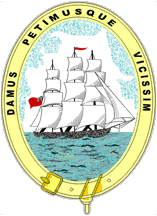Unicario wrote:Bojikami wrote:"I knew there was something special about you." He smiled more and looked up at her. "Well then I suppose I should tell the truth too. Guliano and I aren't just poor immigrants. We both fought in the Great War, joined the Mafia and came overseas to branch out, you know?" He sighed. "Well, if I'm going to go start up some major crime syndicate, I'm glad it's with you."
Izumi rolled her eyes, "I knew there was something you weren't telling me, love... But hey, I was much the same way. During the Great War, I served as a soldier in South China. It was an easy job, considering we rolled up and spit them out without batting an eye. My commander almost raped me in a drunken stupor. Fortunately I'm well versed in the Anything Goes school of Martial Arts, and I'm Yakuza. My oyabun at the time would have had the commander's legs broken, and his life ruined." She snorted and gestured to her left arm. A tattoo bearing the symbol of the Eighteenth Infantry Division which served in South China was on her upper arm. "After South China, me and my squadmates were shipped south to Indochina to fight the Americaners -- was a pain in the ass, but doable. After the war, I came back and was sent here as an oyabun." She waited for everyone to put into the pot before putting down her cards, "Four Kings."
She grinned, "The Yakuza is a very patriotic organization. When draft cards came up for young boys and girls through out the syndicate, the oyabun made us go or else they'd break our legs. The bosses don't look very highly on draft dodgers and those who are unpatriotic for the Empire... they're rather welcoming of people who hate France and the CSA."
Leo grinned again at the last statement. "Well, when I was in Europe on a Froghunt beside the Germans who were at the time our friends, Guliano here helped pull off that miracle in Nigeria against the Venezuelans with the help of the natives. He even speaks some native tongues there. Infact, most of my associates have soldier backgrounds. That's why Mussolini likes us and keeps us around."






